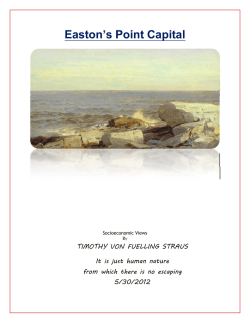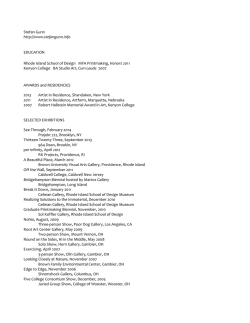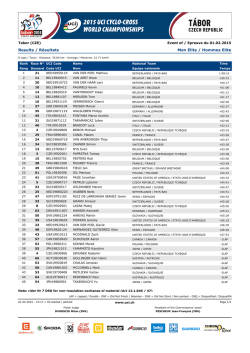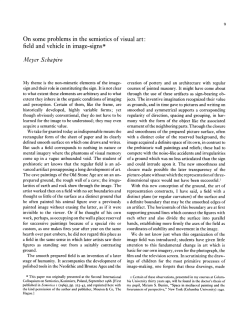
French Reaction in Exile
FRENCH REACTION IN EXILE By MEYER SCHAPIRO I THINK it will interestAmericanreadersto acquaintthem- selves with the latest and most peculiar phase of French literary reaction, which appears also as a bold manifestation of avant-garde thought. In La Communion des Forts, a book of essays published in Mexico City, Roger Caillois, the editor of Lettres Franfaises and one of the outstanding younger French writers, proposes to intellectuals that instead of attacking society individually they band together as a communionof the strong to form a new society within the old and by force of their moral ideals impose an authority of the spirit on the chaotic, unspiritual masses. He conceives the action of this elite on the model of the Jesuit company and the glamorous Treize of Balzac, who rule France as a secret brotherhood of noble outlaw-adventurers,nowhere visible, but everywhere effective through their ramifiedconnections. For this great task certain qualities are indispensable: strict honesty, the will to power, disdain and politeness, - aristocraticvirtues which automatically unite their possessors into a cohesive group, instinctively and irreconcilablyopposed to the rest of mankind, "miserable beings with whom they have nothing in common." Caillois despises the anarchy of modern artists, their faith in spontaneous creation, their whimsicality and irresponsibleleftism, and opposes to these the 17th Centuryvirtues of controlled behavior, dignified, noble thought and cool self-knowledge. At the same time he is 30 REVIEW KENYON fascinated by the irrationaland primitive in society. He has been concernedmainly with the power of myths in social life and often draws the substanceof his writing from folklore and comparative religion. But unlike the romanticand surrealisttaste for the primitive as a benign model of instinctivenessand spontaneity,he studies it as an example of social cohesivenessand of the control of the individual through rites and irrationalbeliefs. His first chapteris a piquant analysisof the accountspublished in the Paris press about the late executioner who died in 1939, accounts that are rich in amusing folklore and survivals of feudal thinking. Caillois observes the symmetryin the attributesof king and hangman, and concludes: "Thus the hangman and the sovereign form a pair. Together they assure the cohesion of society It is not surprising then that both are objects of horror or veneration, of which the sacred characteris clearly apparent."In devoting so many articles to the executioner,the press "shows that there is no society so completely dominated by the powers of abstraction that myth and the realities which beget it lose all right and all power." This combination of the rationalistic and the primitive, which seems so personal and gives a distinct imaginative quality to Caillois' essays, correspondsto a general need in modern reactionary doctrines. The more thoughtful, practical reactionaries- and are rationalists for the ruling class, this is clearest in Nazism irrationalists for the people. The religion which they reject for themselves, they consider indispensable for the masses, if the social order is to be preserved.What Caillois has done is to generalize the irrational effectives in society by shifting from the particular model of the Catholic Middle Ages to a universal and timeless primitive which includes both the savage and the cultureless barbarianof modern society, who demonstrates in his everyday reactions and beliefs the power of the irrational in the higher social forms. By this broadening of the evidence, the laws of social behavior are made to appear independent of particularhis- MEYER SCHAPIRO 31 torical societies;in all periodsand places may be observedthe eternalprocessesof social cohesionand decay;wars, crises,and revolutionsare recurrentpathologicaleffectsin a socialnaturethat is alwaysthe same. The problemtodayis thereforeto resocialize the disintegratingcommunityby restoringthe organsof cohesion: the elite and a realmof the sacred. In general,such appealsfor orderand a governingelite are the currencyof monarchistand fascistgroups. But Cailloisrejects an aristocracy of blood or wealth and condemnsfascismfor its unscientificteachingsof racialandnationalsuperiority;he condemnsalso democracyas the seed of fascism,but admitsthat an ideal orderwill arise soonerfrom democracythan from fascism. The latter is alreadya regimeof authorityand order,although hostileto the spirit,while the disintegratingdemocraticbodyprovides a morefavorablegroundfor the propagandaand contagion of the intellectualelite. His own goal is a re-sacralized,"supersocialized"societywith a spiritualhierarchybasedon intellectual virtuesalone, and is close to the vision of AugusteComtewho outlinedover a hundredyearsago a futureordergovernedby a cepouvoir spirituel" independentof the temporal power. The positivistComte,an admirerof the dictatorship of LouisNapoleon and the autocracyof CzarNicholas I, unitedin one schemeof a future societyboth the progressof scienceand the maintenance of the socialorderthrougha lay Churchpatternedon the Catholicism of the Middle Ages, with minutelyprescribedrites and prayers,- collectiveexercisesto shapethe docilityof the masses. Caillois,too, lays greatweight on the cohesionof societythrough sacraments,and I am told that he has attempted,togetherwith certainsurrealists,to createmodernrites and idols. But he is muchless specificandseriousthanComte(whomhe ignorescompletely), and has nothing to say about the practicalside of his new order. In this reformof society,the existingeconomicand socialrelationsare left untouched,althoughhis own orderwould itprovidefor everyonethe conditionsfor the full developmentof 32 REVIEW KENYON his personality";he apparentlyconsidersspiritualauthorityin itself as a sufficientend fromwhichotherprinciplesand tacticswill logicallyflow. Sincehe is no politicalpartisanand humblydisavows any competencein affairs,he stands above parties as a spokesmanof the higherinterestsof societyreflectedin the intelligenceandmoralityof the elite. andsocialismhavewrittenmuch The oldercriticsof democracy about the creationand betrayalof popularmovementsby the elite which leads them and exploitsthemin its own interest. In Caillois'thoughtthe cynicalstandpointof thesecriticsis converted into an ideal goal: it is indeedthe businessof the elite to impose its will on the ignorant,inferiormasses;what he findsreprehensible is that the modernelite has tied itself to the interestsof particulargroupsand in doing so has betrayedits own highestfunctions and rendereditself ineffective. On the corruptionof intellectualswho servethe rulingclass,he is certainlyright;but he is unawarehow muchhis own doctrinesdependon his relationsto that class,which has for yearspropagatedsimilarnotionsof the needfor an order,stabilizedby a spiritualelite thatactsfor society as a whole. Nor does he considerhow intellectualswho depend materiallyon the upperclasses and the state can overcomethe forcewhichtheseinevitablyopposeto anyattemptedreductionof their power. His few concreteremarkson fascismand democracy show his innocenceof the natureof these group interests; he believes, for example,that fascism is the reactionof a defeated democracyto nationalhumiliation(the historyof Italian and Spanishfascismshouldhave saved him this nonsense),and doesn'tworkbecausethe policyof the government that democracy is subjectto the whimsof an ignorantelectorate.These are banal confusionsand errors,unworthyof a readerof a newspaper. His own model of a pure and effectiveelite, the Jesuits,was not designedto changesocietyin its basic structure,but to preserve the power of the Church- the social institutionsof the time and place being acceptedas necessaryconditionsfor its ac- MEYER SCHAPIRO 33 tivity; although the Jesuits were to some extent reformers of the Church, their action is inconceivable without the latter's strengtlh and its support by the upper classes in Catholic countries. They could function as a disciplined militant group because they were possessed by definite ends and were parts of an already existing institution, whereas Caillois' elite is without a clear doctrine or social attachmentand achieves its unity by a process of instinctive moral coalescence, like a band of writers and artists who share a common personal tendency. His other examples of a strong and militant elite, the Thirteen of Balzac and the Assassins of the Orient, show how much more devoted he is to the personal form and quality of social action, to its style, so to speak, than to the particular social results. It is the marginal, underground, conspiratorial, even criminal aspect of these groups that attractshim; and one guesses that his admiration for the Jesuits is aroused also by the element of the sinister and the unsocial that has been traditionallyattachedto their name. The goal is a secondary matter; with all his contempt for what he takes to be the dogmas and irrationality of Marxism, Caillois will even admit the communists as possible agents of the desired restoration of society, provided they are a secret minority distinct from the masses,- an admission that will undoubtedly be approved by certain reactionaries, if by communists is meant the agents of Stalin. Lacking economic and political proposals, just as he lacks a concrete analysis of the causes of the present state of society, his ends are insistently formal and aesthetic: to bring about a wellmarked cohesiveness, to stabilize society with the help of ceremonies and myths, and to restore the feeling of the sacred in institutions. His elite are the artist-priestsof the social image. The formulas of the modern artisticschools, both the classicist-abstract, with their idea of a rigorously designed order as the condition of harmony, and the expressionist-surrealist,with their faith in the primitive and irrational as the grounds of creativeness, seem to 34 KENYON REVIEW have been transportedhere to the social world. In his aestheticized concept of society, Caillois continues and modernizes the tendency of older ideologists of reaction who created an image of the ChristianMiddle Ages as a perfectly orderedsystem analogous to the cathedrals and the scholastic summas. With the growing incapacityor unwillingness of sociologists to deal with class conflict, the aesthetic image has become more widespread as a model in sociological thinking than is commonly recognized. Consider how the 19th Century views of society as another nature or as a regulated machine have been replaced by the description of particular cultures as organic works of art, with a unity of style, a pervading psychological expression, and a sub-rationalsource of creative energy. Caillois' social thinking is more deeply bound, however, to the self-consciousnessof the modern Frenchartist: the fundamental division within society for him is between the cultured and the uncultured, the elite and the barbarians,the same distinction that governs the arrangementof Courbet's great picture of his studio - a "real allegory," he called it . where the artist has brought together on the right the representativesof the world of thought and the arts, whom he calls the active and the living, and on the left, the rest of humanity,who embody for him death and social decay. This is also the view of Nietzsche, whose psychological and moral distinction between masters and slaves, and whose faith in an elite reappearoften in this book. In France where culture, and especially the arts, are so important in social life, the elite is more likely to feel itself to be a distinct class and to sense its own influence and possibilities. Hence the general use in most countries of the French term "elite," with its connotation of the professional stratumof the bearersand creatorsof culture; just as the Russian word "intelligentsia" has become the international name for a more particularlycritical and intellectual opposition, less concerned with the arts. Caillois speaks, nevertheless, as a professional sociologist. He insists on the rigor and objectivityof science, and more than once MEYER SCHAPIRO 35 presents his conclusions as scientific results. To prepare the reader for his theories of order and authority, he begins with a richly documented investigation of the sociology of the hangman. This essay, which analyzes a historicallytrivial event in order to demonstrate the survival of feudal vestiges in the 20th Century, is significant of the sociological method of Caillois. For he approaches the problem of power and social cohesion indirectly and marginally and - it cannot be said too emphatically - in a completely unhistoricalmanner. His conclusion about the role of sovereign and hangman is a great leap beyond the facts on which it appears to be built, and gives, moreover, little if any insight into the concealed mechanisms of power and submission in our own society. He writes as if speaking of all societies, as if cohesion by its nature is essentially and permanently an affair of the sovereign and the hangman, and as if through the metaphors which link these two the present relations of authority and power are intelligible. But Caillois hasn't enough conviction to say so directly and to apply the conclusions to contemporaryaffairs; he is satisfied to prepare the reader'smind by holding up curious and diverting images of authority, which might render him more accessible to the analogies that follow. In another essay, on the present war, there is a similarly indirect and metaphorical approach. He explains the acceptance of the war and the ease with which great masses of people and thinking minds slipped into it, in spite of the anticipated catastrophes, as a kind of social vertigo, the fascination of the deadly, and transposes to the social group the psychological process of the desperate gambler and the mad lover who pursues the woman who will lead him to destruction. There are admittedly economic and political causes, which, of course, it is not his business to consider or even to state precisely;but his sociological science, that he contrastswith the crude rationalismof the common material explanations, is unable to deal with these causes. It may be that some individuals are attractedto war as gamblers are drawn to the green table, but how 36 REVIEW KENYON muchdoes this say aboutwar as a socialphenomenon,how much does it enableus to predicta war or to foreseethe behaviorof socialgroupsin warandpeace,whichCailloisbelievesis governed by an iron necessity,like naturalphenomena? Betweenthese two essays,samplesof sociologicalmethod,is sandwicheda shallowandignorantcritiqueof Marxism,confused for the most partwith Stalinism. Cailloisdisavowsany desireto or errors,which he considersselfdemonstrateits contradictions evidentand natural,sinceMarx wrote before the great advances in the social sciencesduringthe last hundredyears (it would be interestingto know what he has in mind here) - the fact that Marxistsare constantlydisputingabout principlesproves that Caillois'real aimis to showhow and thesemustbe contradictory; why Marxismbecamea dogma. Even for this limitedhistorical purpose,we expectan examinationof the historyof Marxismor a studyof differentstagesin the growthof its doctrines.But he thathardlyrisesabovethe offersa purelyessayisticdemonstration level of Jouffroy'snaive essayon how dogmasare born and die. BecauseMarxismwas the doctrineof a politicalmovement,principleshad to be acceptedon faith;hencetheyceasedto be examined andwereneverrevisedor questionedin the light of new scienbetificdiscoveries.It appearsthen thatMarxismis contradictory, causeits followersare constantlydisputingthe principles,and a dogmabecauseits principlesare neverdiscussed. This essay,like knowledgeof the writings the restof the book,showsno first-hand of Marx or of the leadersof the Bolshevikrevolution,nor the smallesteffortto come to grips with them, as one might expect from an intellectualwho pretendsto writeon this subject. Thereis a concludingessayon an episodeof ancienthistoryin whichCailloisretellsthe predicamentof Athensbeforethe rising power of Philip of Macedonas an ante-typeof the situationof Franceconfrontedby the threatof Hitler. Again, analogiesand analogies. This one is vague and, as an accountof the past,lacks anycarefulanalysisof the causesof the ancientevents. MEYER SCHAPIRO 37 The social studies of Caillois have been mainly of the primitive levels of culture and an attempt to discover in the most civilized forms the primitive processes and characteristics. This whole effort requires an abstraction from history and from the experiences by which men become civilized, that is, more free as individuals, more capable in nature, more understanding and more productive. His sociology is the study of society as a static or selfbalancing whole, always and everywhere the same in its basic movements from birth to decay. The admission of the historical does not change this, for it is only a Platonic admission, and Caillois insists on the analogy and the eternally primitive societies. An investigator with this viewpoint is incapable of dealing with change and with intricatehistorical processes; he approachesthem indirectly, looking always for the psychological, the mythical, the vestigial, and metaphoricin these phenomena. Such an approach is bound to be sterile, even as literature; for it is too much attached to the piquant and little detail, the amusing analogy, to develop its resourcesof insight and construction. We feel the shallowness most strongly when such a writer, without knowledge of affairs, without even the impulse to acquaint himself thoroughly with the scientific literature, begins to moralize and to offer plans for a new society. We are treated then to aphorisms that deserve a place in Flaubert'sunfinished Dictionary of Accepted Ideas: "To follow an impulse and to oppose it are contraryways," or: "It is when they invoke liberty that individuals commit the most unreasonable acts which enslave them most firmly." The ideas of Caillois have a moral interest as an attempt to recover the sentiments and ties of community of which the lack is felt most keenly by intellectuals and artists. Therein lies the pathos of Caillois' thought which is always imaginative enough to convey the hidden trauma of a personal estrangement,without revealing its exact nature and its cause. But the social in itself, as an ideal, is only a form to Caillois, and a form limited to a particular type of association,which is repressive,binding, authorita- 38 REVIEW KENYON tive or secret and conspiratorial, rather than the condition of a possible freedom for all individuals. Since the lack of cohesion is what disturbshim in our own society, he tends to overratecommunal rites and compulsions; he ignores the possibility of a looser organizationin which men are freer than today and yet as cooperative and humane as in the most harmonious,simple tribal society. The social as such is hardly identical with the closed stabilizing and repressiverelations that appeal so much to Caillois; these arc only a particularhistoricalcase, and it may be said that the anarchy of present life is no less social than the "order"of feudal society and depends no less on conditions that restrict, subordinate and socialize individuals. With all his pathetic appeal to the social and communal, Caillois's writing is noticeably lacking in humane social feeling. The virtues he requiresin his elite are essentially private or repressive and hostile: sociability, love, cooperativeness, generosity, selfsacrifice, good-will, are absent from his catalogue. On the contrary, he is most eloquent and deliberately exalted in describing control, awe, authority,scorn, condescendingpoliteness, obedience and secrecy. And when he has to speak of the atmosphereof his future world, he elaborates images of coldness and aridity; his thought turns to a dry, anti-organicenvironment, the setting for a disciplined mind, which ordinary sensual beings cannot withstand. His whole tendency is against warm feeling, spontaneity, love, in short, against life itself. Hence his curiosity about the hangman, the praying mantis that devours her male, vertigo, the buried or concealed object, the secret group, the fragment of treasuredglass; examine his other writings, his likes and dislikes, and you will see how often he is attracted by the anti-vital, with what anxiety he writes of contactswith the human mass, the living creatureswhom he fears and detests. We are therefore bound to mistrusthim when he tells us that the society regulated by his elite will "providefor everyonethe conditions for the full development of his personality." The question he does not ask himself is SCHAPIRO MEYER 39 whether a society that really provided these conditions would need a repressiveelite, would even have an elite in his sense; whether an elite like his, suspicious of the people, regarding them as brutes, as "almost of a different race" - they seem "to belong to a different animal species,"he says, -would ever put itself to any trouble to create these conditions, which might bring some surprising revelationsof human capacitiesand of the effect of the present degraded state of the lower classes on the morality and life of the elite. His assumption of the inherent inferiority of the non-elite is a foolish prejudice, no better than Nazi racism. In such opinions, as in his essays on the hangman and vertigo, the sociology of Caillois betraysitself as a romanticand humorless social macabre, a learned extension of his emotional attitudes. That is indeed the source of his interest and limitation as a man of letters. Some readers, inspired by a wholesome common sense, will perhaps wonder that attention is given to such ideas. Apart from the talent of Caillois as a writer - it is nuanced, ingenious and often brilliant, but weakened, I think, by the necessity of defending such a position - his essays are significantfor several reasons. They show, in the first place, what has become of the great literary tradition of reaction in France in the present younger generation. Remember that this line included among others Balzac, Baudelaire, Flaubert, Renan, and Taine, and that even in the Action Franfaise the standardsof social inquirywere higher than Caillois'. As the crisis becomes more acute, as the ideal of a cultured life appears daily more problematic, the old concept of a society refined and stabilized by an elite, which gave some dignity to reaction, assumes in the writing of Caillois, who is unwilling to repeat the old formulas and must look for a fresh creed, a strangely morbid and fantastic tone. Unable to accept fascism or royalism or Catholicism, but attached to a hierarchicalsociety, he has devised a poor compound of Nietzsche and Comte (let us forget the Assassins and the Jesuits), wholly unapt for his ends. He 40 REVIEW KENYON wishes the intellectualsas an independentgroup to regenerate society,but he offersthema doctrinethatbetraysthe incapacityof his elite to understandeitherthemselvesor the societythey are to reform. In the secondplace,the book of Cailloisis importantbecause at a time when thereis so great a pressurefrom aboveto justify and to glorify capitalistdemocracy,he openly expressesthe dissatisfactionwith it that thoughtfulintellectualsareboundto feel, but which few will bringinto the foregroundof discussion.He is thereforeable to attractthose who are disillusionedwith democracy,or at least to createan atmosphereof thoughtfavorable to thatdisillusionment.At the sametime,by his faithin the elite as an independentreformingpower, he joins hands with those democratswho hope,througha renewedhumanistic simple-minded educationand religionand moralteachings,to endowdemocracy with a commondisciplineand an absolutespiritualprinciple.But wheretheyimaginethatdemocracycanbe preservedonlyby fixed normsin cultureand morals,Caillois,we have seen,believes,like his great forerunners,that authorityin cultureand moralsis possible only if democracyis weakenedor overcome,sincethe latter is a solvent of such authority. In his notion of a "spiritual power,"Cailloisdrawsout morecompletelythe implicationsof the educators. Their demobeliefs of these innocentlyauthoritarian craticavowalsare indeedoften suspect;a strongpolemicagainst democracyor a socialcrisiswill easilyshaketheirbeliefs; but the of democracywill not necessarilyentail any serious abandonment revisionin theirmoralor culturaldoctrines,sincetheseare finally designedto serve the conservativetendenciesof the time, rather thanto makesocietymoredemocraticthanit is. Caillois'bookhas still anotherandmoredefinitelypoliticalinterest in connection with French society after the war. We have no doubtthat the politicaloutcomeof the war in Francewill be of immenseimportancefor the movementfor a free society throughoutthe entireworld. The victoryor defeat of socialism MEYER SCHAPIRO 41 in Francewill be felt everywhere.The type of franklyreactionary thought representedby Caillois has been most commonin France,whereit has a long intellectualancestrygoing backto the revolutionof 1789. This tradition,carriedby the most cultured elite in the world, is often decidedlypositivisticand devotedto science,in contrastto the Germanand Russianreactionarydoctrinaires;in its ideologyof order,it is sympatheticto scienceas the model of an impersonal,disinterested,aristocraticaction of the mind which establishesgeneral laws and subduesthe chaos of impressionsand the arbitrarinessof individualminds. It can like the metaphysicaland rehardlybe accusedof obscurantism, ligiouscriticsof science,but it has becomeincreasinglymisanthropic andcruel. Everysocialupheavalandmilitarydefeatin France tendency:1789, 1815, has strengthenedthis intellectual-political 1830, 1848, 1871, and 1914 have given freshimpulsesto the idea of a hierarchicalorder, ruled by an elite. It is not commonly realizedwhat conclusionswere drawnby a learned,affableman, like Renan,a liberaland an admirerof Christ,from the experience of 1870-1871. He cameto regardwar as a hygieneof the race,an indispensablemeansof progress;democracywas incomby the victories patiblewith nationalstrength,as was demonstrated of Prussiain 1815 and 1870. He thereforeproposeda stateruled by a privilegedcasteof the army,the Churchand the aristocracy, furthera programof colonialimperialism,the and recommended overthe inferiorraces,as a political ruleof the Frenchmaster-race necessityin avertingclassconflictsin France. And afterthe Commune,he could consolehimself for the Prussianvictorywith the thoughtthat Francenow knew whereto turn for its Scythiansto at home. It is to this sameRenanthatCailpolice the barbarians lois turnedfor lessonsin his Lettres Franfaises, after the defeat of 1940. During the last few years, such doctrineshave been shelved, or concealedby the democraticavowals of the official movementof resistance,which has gatheredaroundits leader a most disparatepolitical supportrangingfrom the Stalinistsand 42 KENYON REVIEW the Socialists to men who in the past have been bitter enemies of democracy. These doctrines will emerge again, in the inevitable clash after the war, when the various factions of the underground movement and the politicians and generals (including de Gaulle, who believes like Renan that, without war, civilization would stagnate) present their claims.' The regime of Petain had already attempted to put into force certain of these teachings. But after the experienceof fascism and the popular revulsion against it, the doctrinairesof order have to differentiatethemselves from it and to adopt at least some of the accreditedaims, whether political or moral, of the anti-fascistcoalitions of the war. By detachinghimself from concrete political aims and by giving to his reactionary ideas a purely moral and formal direction, Caillois contributesto the intellectual conditions for a reactionarypolitical power. But his call for the creation of a secret, militant group, hating the masses, suggests to intellectuals a more practicaland sinister r6le 1. The essay was written before the liberation of France. EDITORS.
© Copyright 2026




